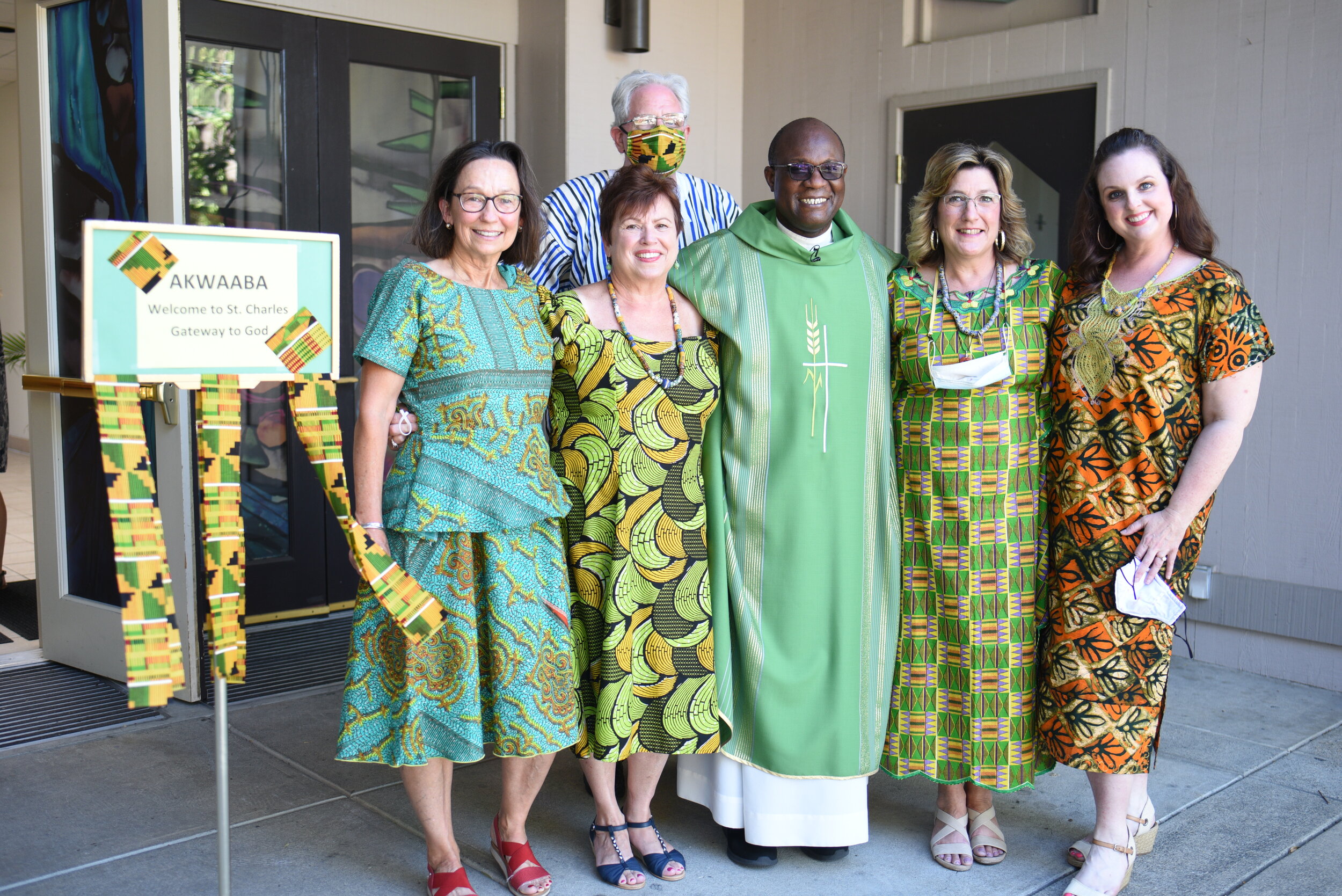Mary Fair, the coordinator for Art and Environment, wanted to thank and acknowledge Fr Kwame’s leadership during these trying and unusual times by creating a new Summer Ordinary environment inspired by fabric from Ghana. She consulted with Darlene Murphy, the founder of W.A.V.E. (West African Village Education) a non-profit whose mission is to promote education in developing countries. W.A.V.E. is currently supporting a school in Ghana that has provided 250 children in the village the opportunity to attend school (up from 85). Not only did Darlene recommend a kente cloth print from Ghana, she also cut and sewed all the green and kente cloth panels for the church, vestibule, and chapel that were installed last weekend. Thank you, Darlene!
Kente cloth is a brightly colored material woven in thin strips on narrow looms, typically by men. The narrow strips are interlaced to form a fabric that is usually worn wrapped around the shoulders and waist like a toga. The garment is also known as kente. Women wear two shorter lengths to form a skirt and bodice.
Kente is the most widely known cloth produced in Africa. Kente is now identified with the Ewe and Ashanti people of Ghana and arose first in West Africa during the 17th century. The Ashanti are members of the Akan people who speak the Akan or the Ashanti dialect. “Kente” is an Akan/Ashanti word meaning basket, but the Akan also refer to the material as “nwentoma,” meaning woven cloth.
Kente has its own mythology – claiming the original cloth was taken from the web of a spider. Colors and the patterns are significant and convey meanings. Here are a few colors commonly found in kente cloth, and their meanings, per Sankofa Edition and Adinkra Brand.
● black: spiritual strength, maturity; mourning and funeral rites
● red: blood, death, political passion, strength
● blue: peace, love, unity, and harmony
● gold or yellow: wealth, royalty
● green: growth, harvest, renewal
● white: purity, cleansing rites, festive occasions
● purple or maroon: Mother Earth, healing, protection from evil









